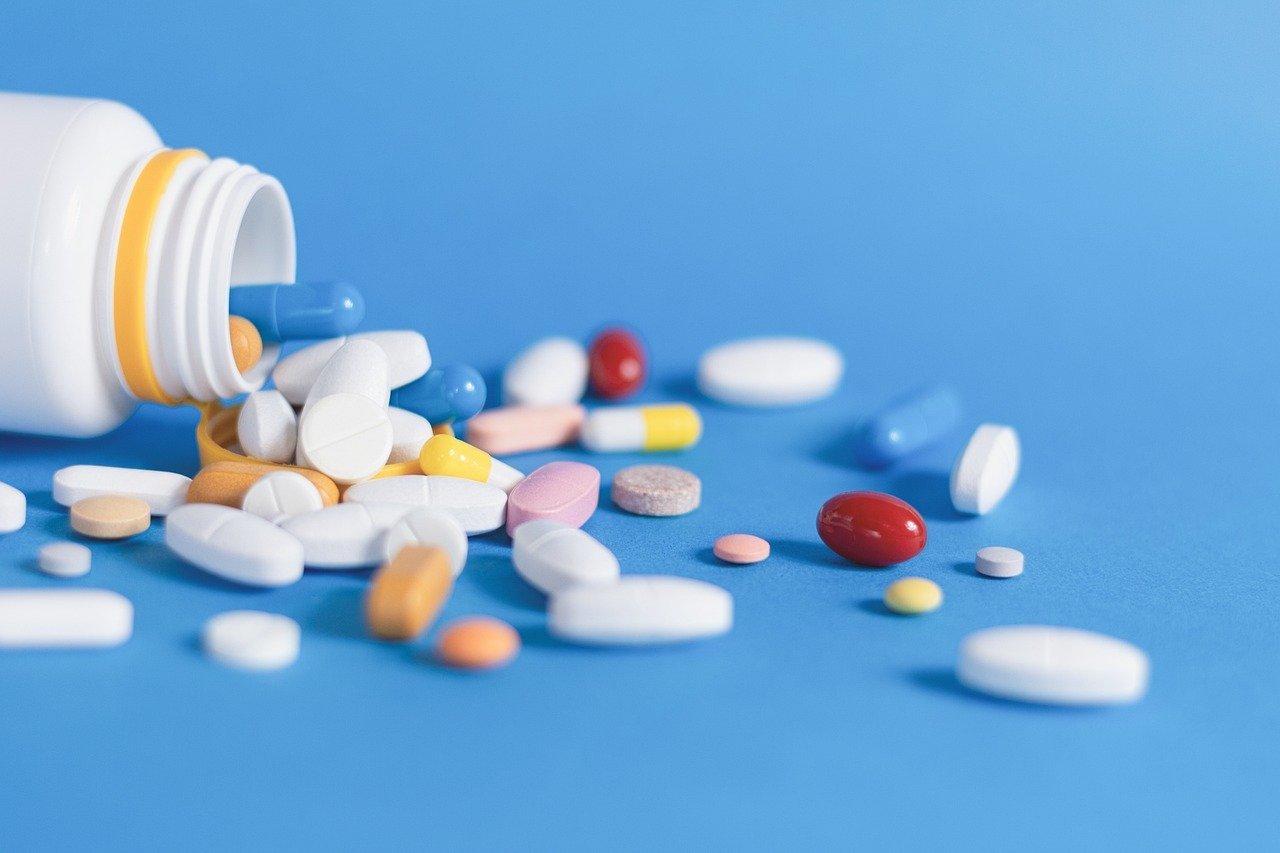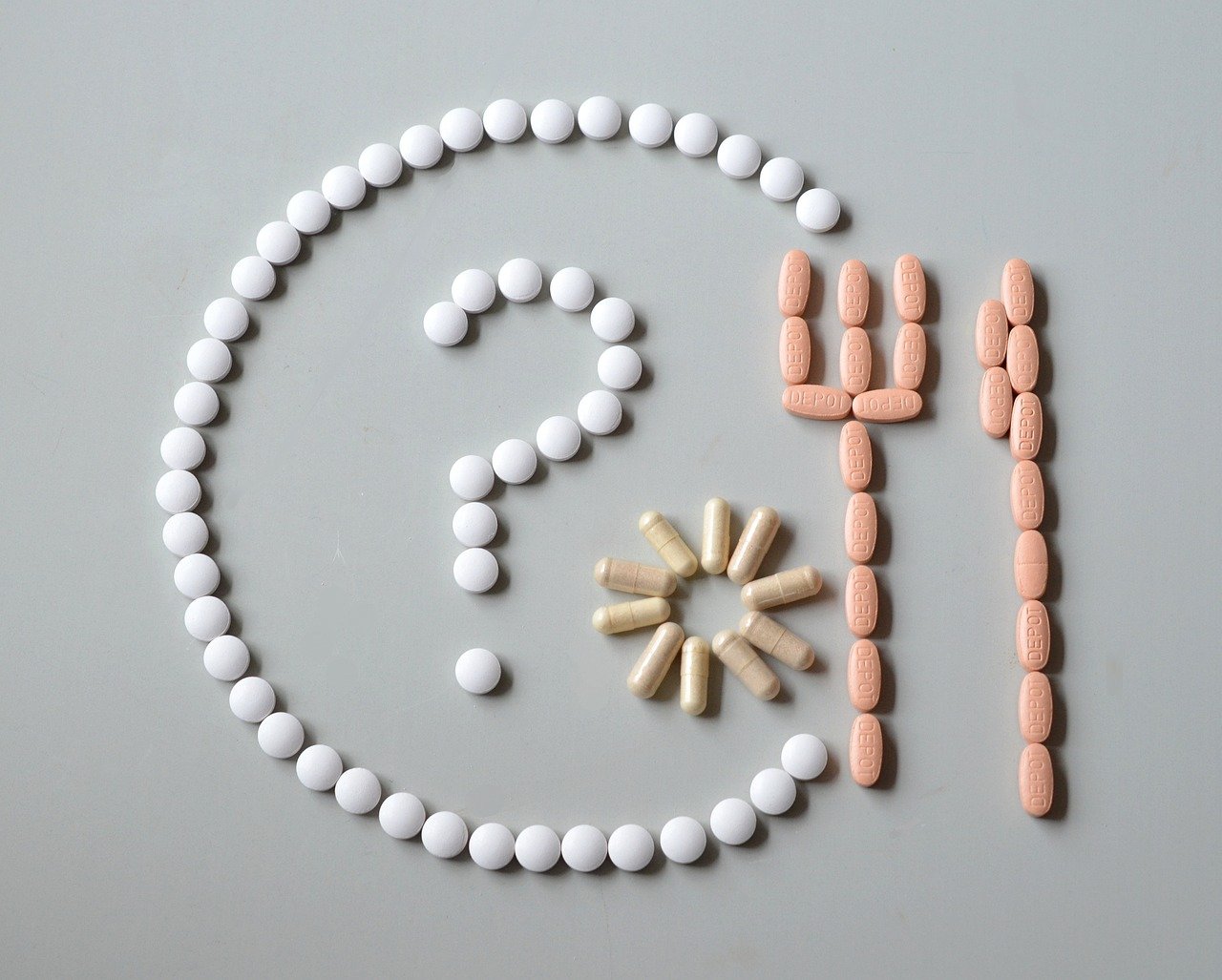If you’ve ever wondered about the effectiveness of supplements in boosting your mood and mental well-being, you’re not alone. In the pursuit of overall wellness, many people are turning to alternative methods to support their mental health. Fortunately, there are indeed supplements that have shown promise in enhancing mood and promoting mental well-being. By incorporating these supplements into your daily routine, you may find yourself on a path towards a more balanced and positive mindset.
Vitamin D
Importance of Vitamin D for Mood and Mental Health
Vitamin D is often referred to as the “sunshine vitamin” because our bodies can produce it in response to sunlight exposure. This essential nutrient plays a crucial role in regulating mood and mental health. Research has shown a strong link between vitamin D deficiency and an increased risk of depression and other mental health disorders.
When you don’t get enough vitamin D, your brain can’t produce sufficient amounts of serotonin, which is a neurotransmitter responsible for regulating mood. Low levels of serotonin can lead to feelings of sadness, anxiety, and even depression. Furthermore, vitamin D deficiency has been associated with cognitive decline and an increased risk of developing conditions such as Alzheimer’s disease.
Sources of Vitamin D
While sunlight is an excellent source of vitamin D, various factors such as geographic location, time of year, and excessive use of sunscreen can limit the amount of vitamin D your body produces through sun exposure. Therefore, it’s important to ensure you’re getting an adequate amount of vitamin D through your diet or supplements.
Fatty fish like salmon, mackerel, and trout are excellent dietary sources of vitamin D. Other options include fortified dairy products, eggs, and certain mushrooms. However, it may still be challenging to meet your daily vitamin D requirements through diet alone, especially if you have limited sun exposure.
Recommended Dosage and Potential Side Effects
The recommended daily intake of vitamin D for most adults is between 600 to 800 international units (IU). However, some individuals, such as those with limited sun exposure, may require higher doses as advised by their healthcare provider.
Vitamin D is generally considered safe when taken at recommended doses. However, excessive intake can lead to toxicity, which can cause symptoms such as nausea, vomiting, and kidney problems. It’s important to consult with your healthcare provider before starting any new supplement regimen to ensure you’re taking the appropriate dosage for your specific needs.
Omega-3 Fatty Acids
The Role of Omega-3 Fatty Acids in Mood and Mental Health
Omega-3 fatty acids, particularly EPA (eicosapentaenoic acid) and DHA (docosahexaenoic acid), are essential nutrients that play a vital role in brain health and overall mental well-being. These fatty acids are critical components of cell membranes in the brain and help support communication between brain cells.
Research suggests that omega-3 fatty acids have numerous benefits for mood and mental health. They have been shown to reduce symptoms of depression, anxiety, and even ADHD (attention-deficit/hyperactivity disorder) in some individuals. These fatty acids also have anti-inflammatory properties, which may help protect the brain from oxidative stress and inflammation, both of which are associated with mental health disorders.
Sources of Omega-3 Fatty Acids
Fatty fish such as salmon, tuna, and sardines are excellent dietary sources of omega-3 fatty acids. Plant-based sources include flaxseeds, chia seeds, and walnuts. However, it’s important to note that the body is not efficient at converting the plant-based omega-3 fatty acid ALA (alpha-linolenic acid) into EPA and DHA. Therefore, supplementation with fish oil or algae-based omega-3 supplements may be necessary to ensure adequate intake.
Recommended Dosage and Potential Side Effects
The recommended daily intake of omega-3 fatty acids varies depending on age, sex, and individual health conditions. However, a general guideline for adults is to consume at least 250-500 mg combined EPA and DHA per day.
Omega-3 fatty acid supplements are generally safe when taken as recommended. However, high doses can have blood-thinning effects and may interact with certain medications, such as blood thinners. It’s always best to consult with your healthcare provider before starting any new supplement regimen to determine the appropriate dosage and discuss any potential risks or interactions.

B Vitamins
The Impact of B Vitamins on Mood and Mental Health
B vitamins, including folate (vitamin B9), vitamin B6, and vitamin B12, are crucial for maintaining optimal brain function and promoting mental well-being. These vitamins play a vital role in the production of neurotransmitters such as serotonin, dopamine, and GABA (gamma-aminobutyric acid), all of which are essential for regulating mood and reducing symptoms of anxiety and depression.
Research has shown that deficiencies in certain B vitamins, particularly folate and vitamin B12, are associated with an increased risk of depression and cognitive decline. Adequate intake of B vitamins can help support brain health, improve mood, and enhance cognitive function.
Sources of B Vitamins
B vitamins can be found in a variety of foods, including whole grains, leafy green vegetables, legumes, nuts, and seeds. Animal-based products such as meat, fish, eggs, and dairy also contain significant amounts of B vitamins, especially vitamin B12.
For individuals who may have difficulty obtaining enough B vitamins through their diet alone, supplementation may be beneficial. B-complex supplements, which contain a combination of B vitamins, are available and can help ensure you’re meeting your daily requirements.
Recommended Dosage and Potential Side Effects
The recommended daily intake for B vitamins can vary depending on the specific vitamin and individual needs. The general guideline for adults is approximately 1.3-2.4 mcg of vitamin B12, 1.3-1.7 mg of vitamin B6, and 400-800 mcg of folate.
B vitamins are generally safe when taken within the recommended dosages. However, high doses of certain B vitamins, particularly vitamin B6, can cause adverse effects such as nerve damage and sensory neuropathy. It’s important to consult with your healthcare provider before starting any new supplement regimen to ensure you’re taking the appropriate dosage.
Magnesium
The Influence of Magnesium on Mood and Mental Health
Magnesium is an essential mineral that plays a crucial role in various bodily functions, including mood regulation and mental health. It acts as a natural relaxant and helps regulate neurotransmitters involved in mood, such as serotonin and GABA. Magnesium also plays a role in reducing inflammation and oxidative stress, which are associated with mental health disorders.
Research suggests that magnesium deficiency may contribute to the development of anxiety and depression. Supplementing with magnesium can help improve mood, reduce stress, and enhance overall mental well-being.
Sources of Magnesium
Magnesium can be found in a variety of foods, including green leafy vegetables, nuts, seeds, legumes, and whole grains. Some individuals may struggle to meet their daily magnesium requirements through diet alone, especially if they have conditions that interfere with magnesium absorption, such as gastrointestinal disorders.
Magnesium supplements are available in various forms, including magnesium citrate, magnesium glycinate, and magnesium oxide. These supplements can be beneficial for individuals who require higher doses or have difficulty obtaining sufficient magnesium through their diet alone.
Recommended Dosage and Potential Side Effects
The recommended daily intake of magnesium varies depending on age, sex, and individual health conditions. For most adults, a general guideline is to aim for approximately 320-420 mg per day. However, it’s important to consult with your healthcare provider to determine the appropriate dosage based on your specific needs.
Magnesium supplements are generally safe when taken as recommended. However, high doses can cause digestive issues, such as diarrhea and stomach cramps. Individuals with kidney problems should exercise caution when taking magnesium supplements and consult with their healthcare provider.

Probiotics
The Connection between Probiotics and Mood
Probiotics are “friendly” bacteria that provide numerous health benefits, including supporting the gut-brain axis, which is the bidirectional communication between the gut and the brain. Emerging research suggests that the health of our gut microbiota may influence our mood and mental well-being.
The gut microbiota produces various compounds, including neurotransmitters and short-chain fatty acids, which play a role in regulating mood and reducing symptoms of anxiety and depression. Imbalances in the gut microbiota, known as dysbiosis, have been linked to mental health disorders.
Sources of Probiotics
Probiotics can be found in fermented foods such as yogurt, kefir, sauerkraut, kimchi, and pickles. These foods contain live strains of beneficial bacteria that can help restore and maintain a healthy gut microbiota.
For individuals who may not consume enough probiotic-rich foods, probiotic supplements are also available. These supplements provide specific strains of beneficial bacteria in concentrated doses and can help promote a healthy gut microbiota.
Recommended Dosage and Potential Side Effects
The recommended dosage of probiotics varies depending on the specific strain and individual needs. It’s important to follow the dosage instructions provided by the manufacturer or consult with your healthcare provider for guidance.
Probiotics are generally considered safe for most individuals. However, some people may experience mild digestive symptoms such as bloating or gas when first starting probiotic supplementation. These symptoms typically subside as the body adjusts. If you experience severe or persistent side effects, it’s best to consult with your healthcare provider.
5-HTP
The Effects of 5-HTP on Serotonin Levels and Mood
5-HTP (5-Hydroxytryptophan) is a naturally occurring amino acid that is converted into serotonin in the body. Serotonin is a neurotransmitter that plays a vital role in regulating mood, sleep, and appetite. Increasing serotonin levels through 5-HTP supplementation has been shown to have positive effects on mood and mental well-being.
Research suggests that 5-HTP can help reduce symptoms of depression, anxiety, and promote a more positive outlook. It may also aid in improving sleep quality and reducing cravings for carbohydrates.
Sources of 5-HTP
5-HTP is derived from the seeds of the Griffonia simplicifolia plant. It is available as a dietary supplement in capsule or tablet form. 5-HTP supplements are commonly used as a natural alternative to traditional antidepressant medication.
Recommended Dosage and Potential Side Effects
The recommended dosage of 5-HTP varies depending on the specific needs and health conditions of the individual. It’s important to follow the dosage instructions provided by the manufacturer or consult with your healthcare provider for guidance.
While 5-HTP is generally considered safe when taken at recommended doses, it can cause side effects such as nausea, vomiting, and gastrointestinal disturbances in some individuals. It may also interact with certain medications, such as antidepressants and monoamine oxidase inhibitors (MAOIs). As with any supplement, it’s important to consult with your healthcare provider before starting 5-HTP to ensure it is safe for you and does not interact with any medications you may be taking.

Turmeric
The Potential Benefits of Turmeric for Mood and Mental Health
Turmeric is a bright yellow spice widely used in traditional medicine and culinary practices. It contains a bioactive compound called curcumin, which has potent anti-inflammatory and antioxidant properties. These properties make turmeric a promising natural supplement for supporting mood and mental health.
Studies have shown that curcumin may help reduce symptoms of depression and anxiety by modulating neurotransmitters and reducing inflammation in the brain. It may also support cognitive function and protect against age-related cognitive decline.
Sources of Turmeric
Turmeric is commonly used as a spice in cooking, particularly in Indian and Southeast Asian cuisine. It can be added to curries, soups, stir-fries, and even smoothies to add a warm and earthy flavor. However, it can be challenging to obtain therapeutic doses of curcumin through dietary turmeric alone. Therefore, supplementation with curcumin extracts may be necessary to experience the full potential benefits.
Recommended Dosage and Potential Side Effects
The recommended dosage of turmeric or curcumin supplements can vary depending on the concentration of curcumin and individual needs. It’s essential to follow the dosage instructions provided by the manufacturer or consult with your healthcare provider for guidance.
Turmeric is generally considered safe when taken as a spice in moderate amounts used in cooking. However, high doses of curcumin supplements may cause digestive upset, such as stomach pain or diarrhea, in some individuals. It’s important to consult with your healthcare provider before starting any new supplement regimen, especially if you have underlying health conditions or are taking medications, to ensure it is safe for you.
Ginkgo Biloba
The Impact of Ginkgo Biloba on Cognitive Function and Mood
Ginkgo biloba is one of the oldest living tree species in the world and has been used in traditional medicine for centuries. It is rich in antioxidants and has been studied for its potential benefits on cognitive function and mood.
Research suggests that ginkgo biloba may help improve cognitive functions such as memory, attention, and concentration. It is believed to work by enhancing blood flow to the brain and protecting against neuronal damage caused by oxidative stress. Some studies have also suggested that ginkgo biloba may have positive effects on mood, reducing symptoms of anxiety and depression.
Sources of Ginkgo Biloba
Ginkgo biloba supplements are made from the leaves of the ginkgo tree and are available in various forms, including capsules, tablets, and extracts. These supplements provide standardized doses of specific active compounds found in ginkgo biloba.
Recommended Dosage and Potential Side Effects
The recommended dosage of ginkgo biloba supplements can vary depending on the specific product and individual needs. It’s important to follow the dosage instructions provided by the manufacturer or consult with your healthcare provider for guidance.
Ginkgo biloba supplements are generally well-tolerated when taken at recommended doses. However, some individuals may experience mild side effects such as headaches, dizziness, or digestive issues. Ginkgo biloba may interact with certain medications, such as blood thinners and antidepressants, so it’s important to consult with your healthcare provider before starting this supplement.
St. John’s Wort
The Use of St. John’s Wort in the Treatment of Mild to Moderate Depression
St. John’s Wort is a flowering plant commonly used as a natural remedy for various mental health conditions, including mild to moderate depression. It contains active compounds such as hypericin and hyperforin, which are believed to have mood-enhancing effects.
Research suggests that St. John’s Wort may be as effective as certain antidepressant medications in alleviating symptoms of mild to moderate depression. It works by increasing levels of serotonin, dopamine, and noradrenaline in the brain, which are neurotransmitters involved in mood regulation.
Sources of St. John’s Wort
St. John’s Wort is available as a dietary supplement in various forms, including capsules, tablets, and liquid extracts. It’s important to choose reputable brands and products that contain standardized amounts of hypericin and hyperforin to ensure consistency and quality.
Recommended Dosage and Potential Side Effects
The recommended dosage of St. John’s Wort can vary depending on the specific product and individual needs. It’s important to follow the dosage instructions provided by the manufacturer or consult with your healthcare provider for guidance.
St. John’s Wort can cause side effects such as photosensitivity, digestive issues, and interactions with other medications. It may also interfere with certain medical conditions and can interact with several medications, including birth control pills, anticoagulants, and antidepressants. It’s crucial to discuss the use of St. John’s Wort with your healthcare provider to determine if it’s a safe and appropriate option for you.
Ashwagandha
The Stress-Relieving Properties of Ashwagandha and its Impact on Mental Health
Ashwagandha, also known as Withania somnifera, is an adaptogenic herb commonly used in traditional Ayurvedic medicine. It has been utilized for centuries to help the body adapt to stress and promote overall well-being.
Research suggests that ashwagandha may help reduce symptoms of stress, anxiety, and depression by regulating cortisol, the stress hormone. It also has antioxidant properties that help protect against oxidative stress and may improve overall mental well-being.
Sources of Ashwagandha
Ashwagandha is available as a dietary supplement in various forms, including capsules, powders, and liquid extracts. It’s important to choose reputable brands and products that contain standardized amounts of withanolides, the active compounds found in ashwagandha.
Recommended Dosage and Potential Side Effects
The recommended dosage of ashwagandha can vary depending on the specific product and individual needs. It’s important to follow the dosage instructions provided by the manufacturer or consult with your healthcare provider for guidance.
Ashwagandha is generally well-tolerated when taken at recommended doses. However, high doses may cause digestive upset or drowsiness in some individuals. It’s important to consult with your healthcare provider before starting ashwagandha supplementation, especially if you have underlying health conditions or are taking medications, to ensure it is safe for you.
In conclusion, there are numerous supplements available that can potentially support mood and mental health. However, it’s important to remember that supplements are not intended to replace medical treatment or therapy. Always consult with your healthcare provider before starting any new supplement regimen to ensure it is safe and appropriate for you. Additionally, maintaining a healthy lifestyle, including regular exercise, a balanced diet, and stress management techniques, is crucial for overall mental well-being.